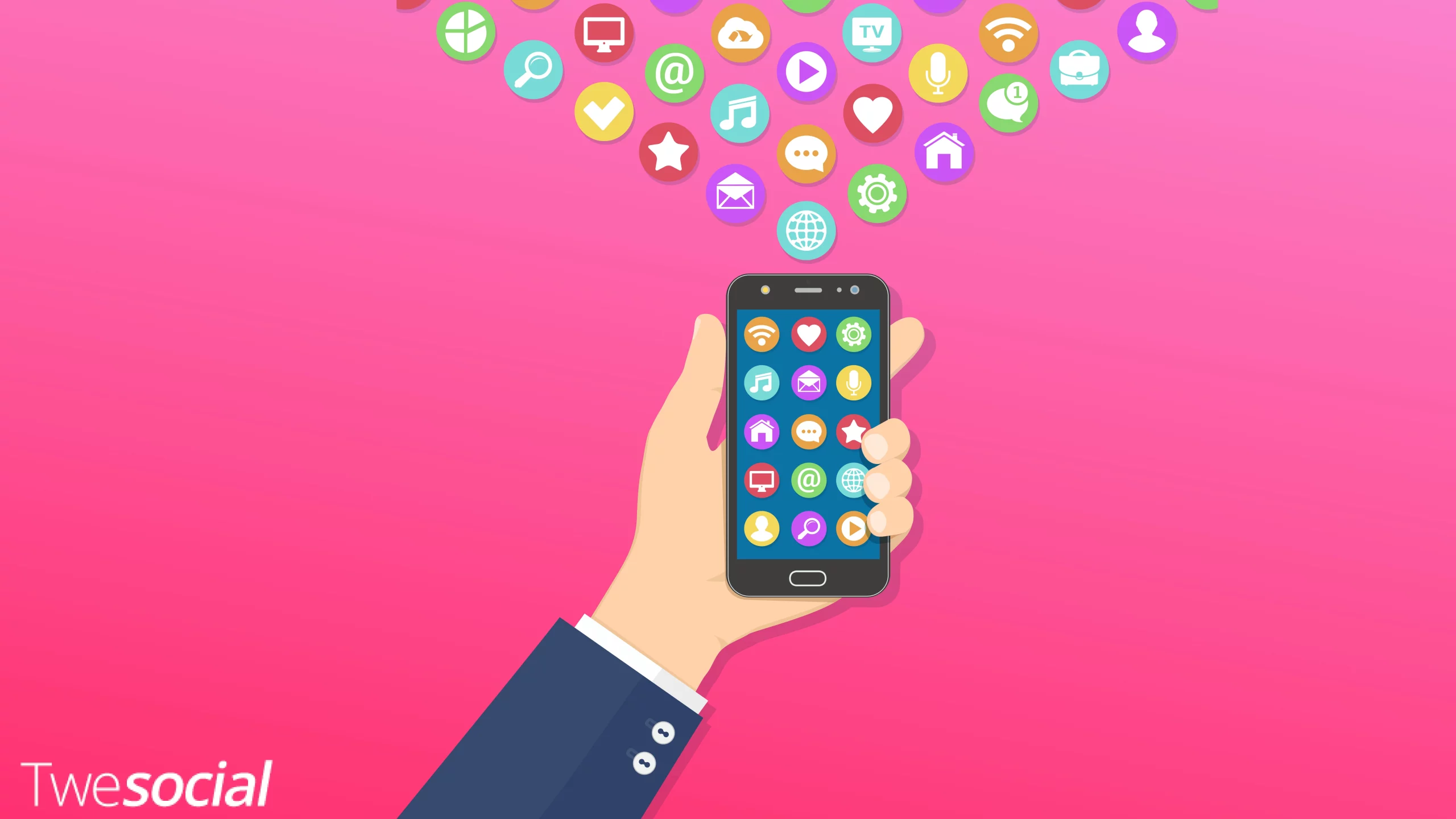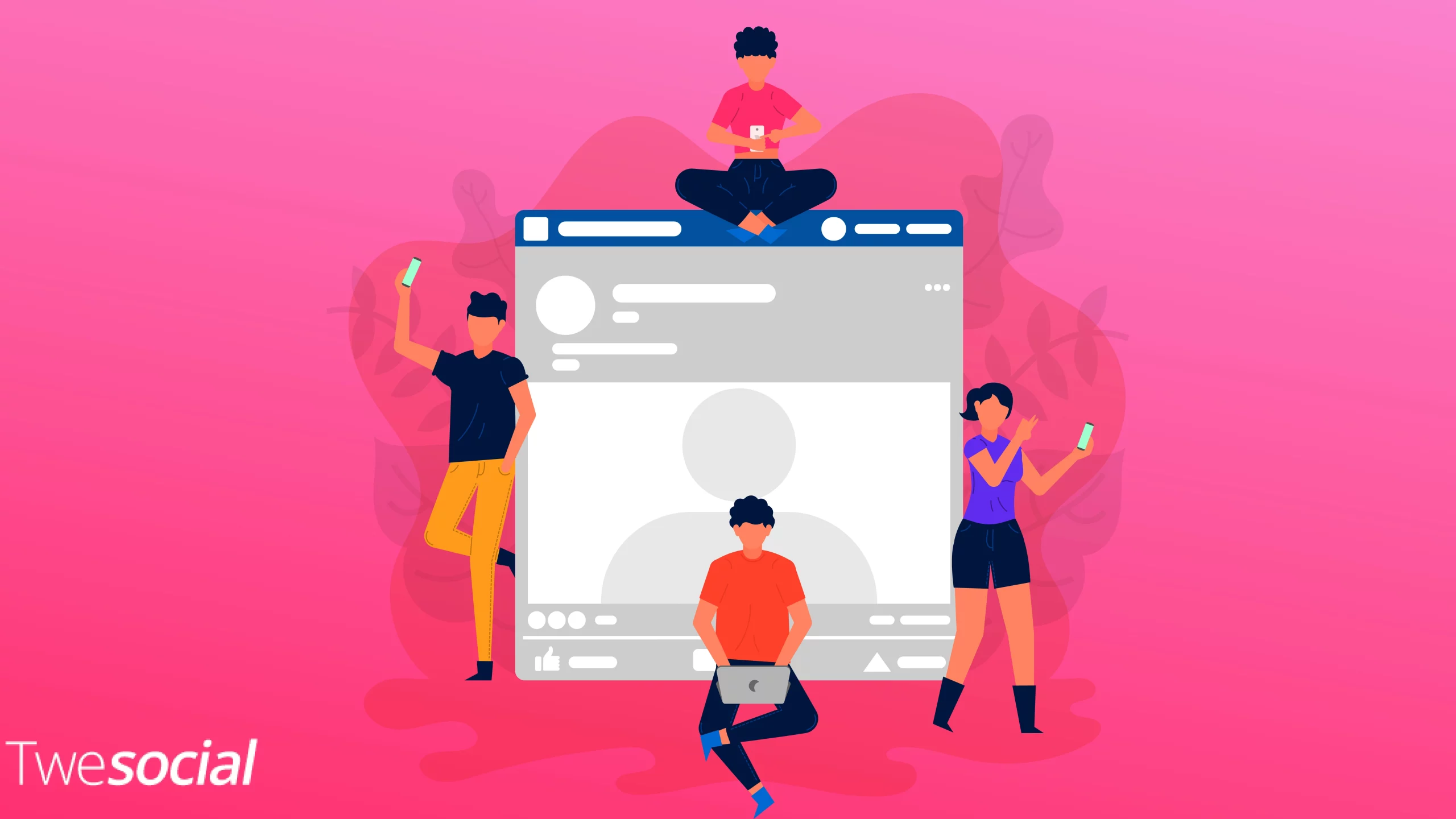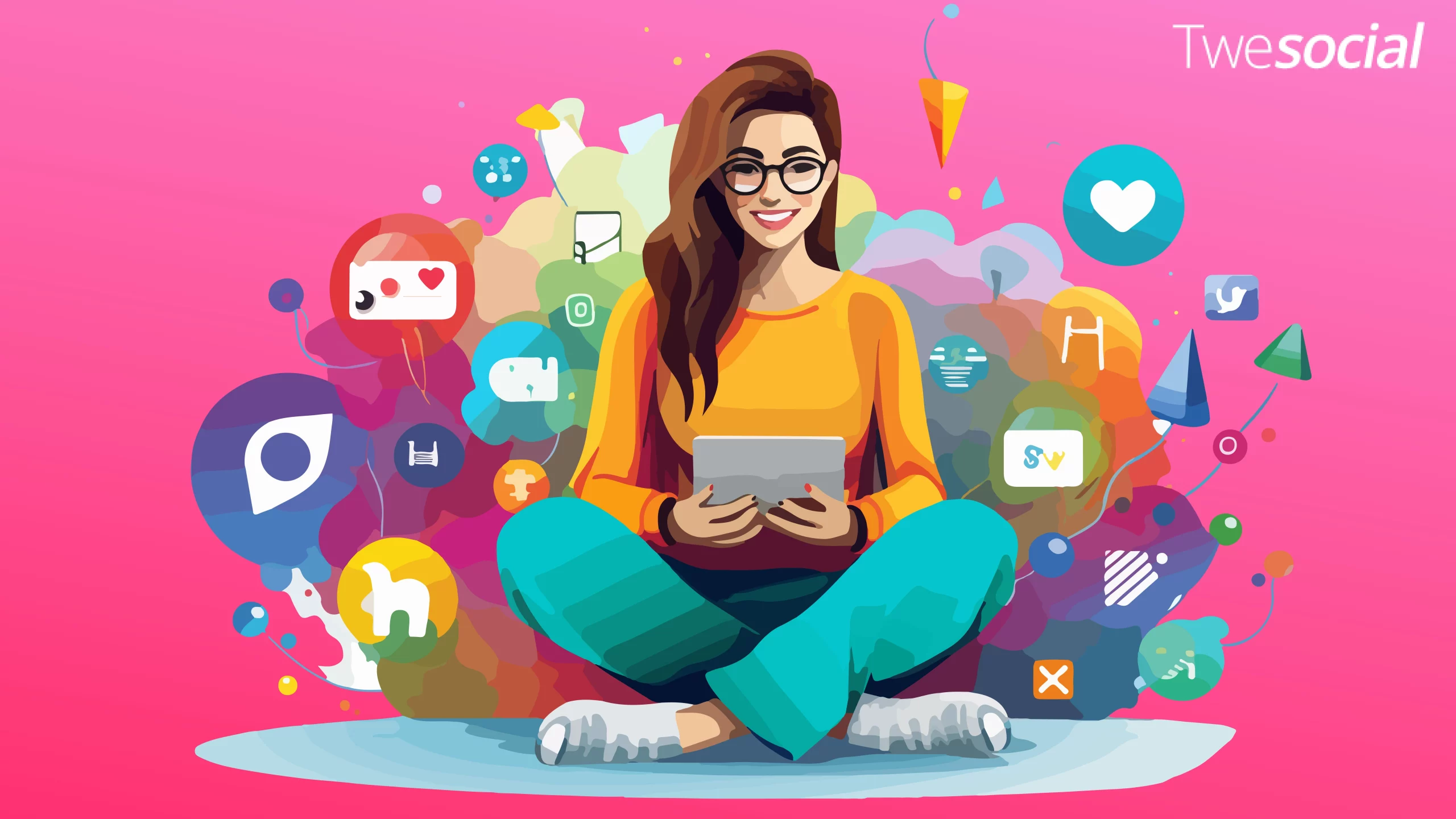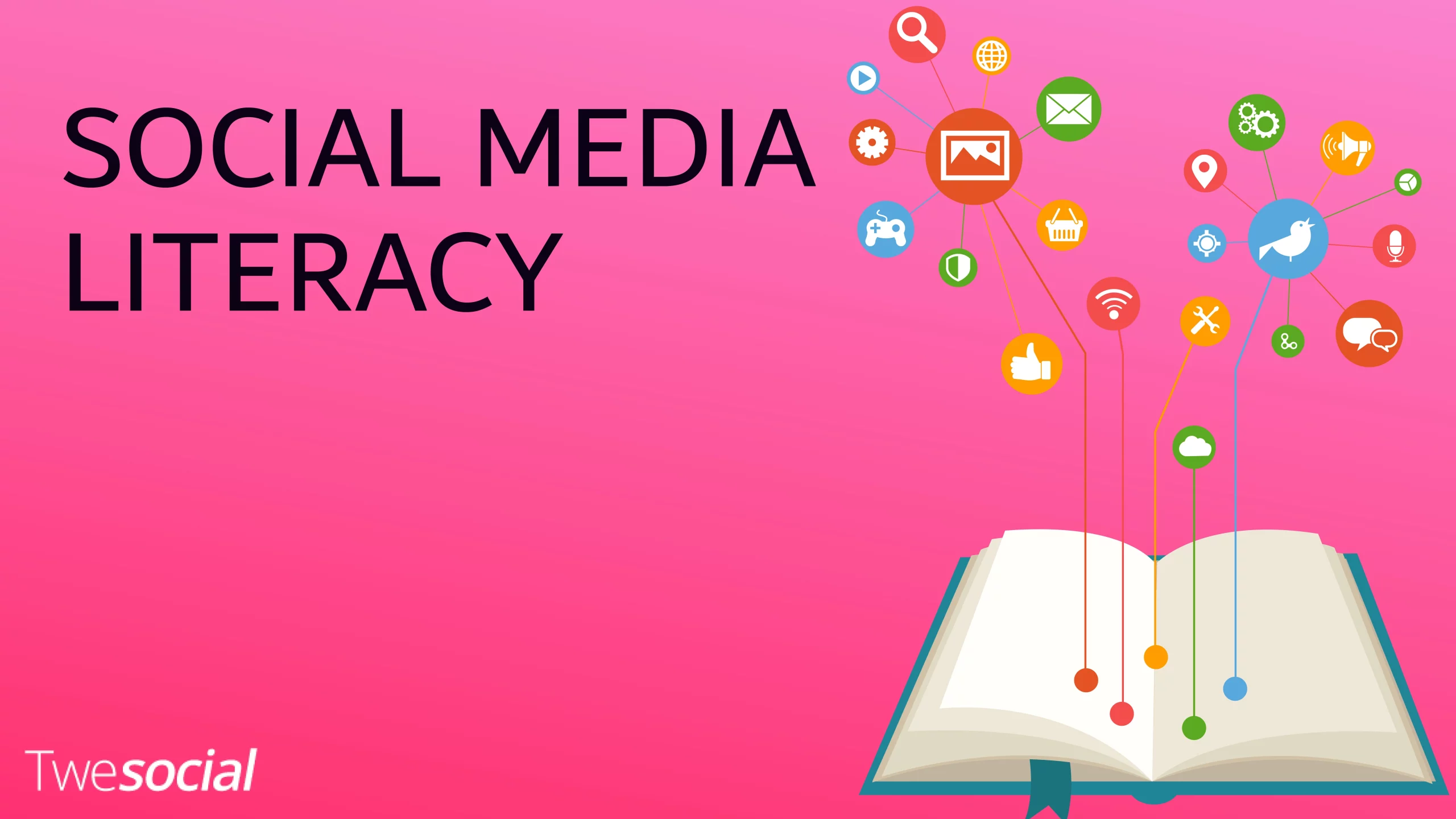Social media literacy is about being safe and smart online. Social media is everywhere and we need to know how to navigate it.
From recognizing credible sources to spotting misinformation, seeing how media literacy works helps us stay informed and maintain our privacy. It’s not just about posting or commenting, it’s about understanding the media messages we share and see online.
Let’s get into what social media literacy is, why it’s important, and how we can all get better at social media.
Table of Contents
What is Social Media Literacy?

Social media literacy is being able to use social media wisely and intentionally. It’s more than just posting pics or watching videos – it’s knowing how to find trustworthy info and how social media affects us and others.
Think of social media literacy as a set of skills to help us navigate social media. These skills include knowing how to spot fake news, understanding privacy, and how what we post online affects our reputation.
Media literacy in general is about understanding how different forms of media work – TV, newspapers, and social media. With social media, we need to pay extra attention to what we post and how we interact because it’s a place where info spreads fast, and not everything we see is true.
In short, social media literacy helps us be smart online.
Social Media Literacy Key Concepts
Social media literacy means knowing some key concepts about using social media responsibly and well:
Identity and Privacy
On social media, identity is how we show up to the world. Think about what we share and how it reflects on us. Privacy is who sees our info and we’re not sharing too much with strangers or even friends. Protecting your privacy keeps your info safe from being misused.
Reliable Sources and Misinformation
Social media is full of info, but not all of it is true. Reliable sources are those that provide true and reliable info. Learning to recognize those sources is a big part of being media literate.
Misinformation or “fake news” is designed to trick or mislead people. It’s important to be able to tell the difference so you don’t spread false info.
Participation and Community
Being on social media means engaging with others commenting, sharing, and joining conversations. That’s called participation. It’s important to participate positively and contribute to healthy communities. Being respectful online helps create a better space for everyone.
Why Social Media Literacy is Key

Social media literacy is so important because we can use social media safely and wisely. Social media is a big part of our lives now, especially for younger ones.
Whether we’re chatting with friends, catching up on news, or finding new hobbies social media affects how we see the world and connect with others. This education in social media literacy helps us navigate these interactions more effectively.
Here’s why social media literacy matters:
- Impact on Young People: Many young individuals spend hours on social media platforms every day. Without the right knowledge, they may not know when they’re seeing false information online or what could happen if they share too much personal info.
Learning about social media literacy helps them think more and make better decisions about what they post and read online. - Navigating the Digital World: The internet is always changing with new apps and trends popping up all the time. Knowing how social media platforms work helps us keep up with all these changes and protects us from scams or harmful stuff. It’s like having a map to guide us through the ever-changing online world.
- Digital Citizenship: Being a good digital citizen means being kind to others and being responsible online. Social media literacy teaches us about digitized citizenship which is about not cyberbullying and making sure our interactions are positive. When we all behave nicely the internet is a better and safer place for everyone.
Social Media Literacy Skills
To be truly media literate on social media, we need to develop:
Critical Thinking
Critical thinking involves actively engaging with what we see and read online. Not everything on social media platforms is true, so we need to look closely, ask questions, and engage in verification before we believe or share anything. This ensures we don’t get duped and only share information from reliable sources.
Engaging with Communities
Being on social media platforms means we interact with real people and different communities. Social media literacy emphasizes the importance of engaging positively and respectfully.
That means not spreading negativity, respecting other people’s opinions, and contributing meaningfully to conversations. The ability to understand and reflect on the media messages we share and respond to can lead to good engagement, which builds stronger and more supportive communities.
Digital Citizenship
Digital citizenship is about knowing how to behave online. It includes knowing your rights and responsibilities on social media, how to protect yourself, and how to respect others.
Being a good digital citizen means you’re helping make social media sites a safer and more fun place for everyone by managing media messages wisely and respectfully. Social media literacy is a very important component of this, as it empowers us to navigate these platforms more effectively and ethically.
How to be Social Media Literate
Being social media literate means being social media-wise and safe. Whether you’re new to social media or have been using it for years there are always ways to improve your skills and make better decisions online. Here are some simple steps to help you be social media literate:
Educators and Parents
- Start Early: Start talking to young individuals about social media and online behavior as soon as they start using the internet. This helps them understand privacy and the impact of what they share online.
- Encourage Critical Thinking: Teach kids to question what they see online. Ask them, “Is this information from a credible source?” or “Could this be misleading information?”
- Set Boundaries: Help young people set healthy boundaries for their social media use. This means talking about what to share, who to connect with, and how much time to spend online.
Safe and Smart Social Media Habits
For everyone safe and smart social media habits are key to staying safe online. Here are some tips:
- Verify Information: Before sharing any post or news check if it comes from a credible source. Double-check facts and look for signs of misleading information.
- Protect Your Privacy: Use the privacy settings on your social media accounts to control who can see your posts and personal information. Be mindful of what you share and don’t post personal details that could be misused.
- Be Respectful and Kind: Remember there are real people behind the screen. Treat others with respect, don’t post negative comments, and don’t engage in arguments or bullying.
- Stay Up to Date: Social media is constantly changing. Stay informed about new features, privacy policies, and safety tools that can help you protect your online presence.
Social Media Literacy in Action

Social media literacy isn’t just about the rules, it’s also about seeing these skills in action. Here are some real-life examples:
Fake News
Imagine a friend sharing a shocking news story on social media. Before you accept status-quo, a media literate person would check other sources to see if it’s true, verifying only what reputable news outlets are reporting.
If no other reputable news outlets are reporting the same story, it might be misinformation. Employing such practices helps stop the spread of false information and keeps you informed of the facts.
Privacy Settings
A young person joins a new social media platform and wants to share photos with friends. By knowing their privacy settings they can control who sees their photos and keep their info safe from strangers. This protects them from potential risks like identity theft or unwanted contact.
Positive Engagement in Online Communities
Someone who is media literate might join an online community related to a hobby they love. They participate by sharing helpful tips and cheering others on, employing positive practices instead of posting negative comments or starting arguments.
This ability creates a positive space where everyone feels included and valued.
Conclusion
Social media literacy is key in our connected world. By increasing our social media literacy through learning how to use social media safely, recognizing reliable sources, and avoiding misinformation, we can navigate the ever-changing landscape of the internet more effectively.
Whether you’re a student, parent, or educator, these skills are essential for maintaining privacy and fostering positive online interactions. Let’s all work on improving our social media literacy and make the internet a safer place for everyone by understanding the media messages we encounter daily.
Frequently Asked Questions
What is media literacy for social media?
Social media literacy is about learning how to use social media wisely. It’s about knowing how to evaluate sources, recognize misinformation, and protect your privacy.
Media literacy helps you make good decisions about what to share, like, or comment on when using social media.
What is an example of media literacy?
An example of media literacy is being able to spot fake news on social media. Let’s say you see a sensational headline shared by a friend. Instead of believing it right away, a media-literate person would check the story on multiple reliable sources to see if it’s true. That way they don’t spread misinformation and stay informed.
What is digital literacy in social media?
Digital literacy in social media means the skills to use social media platforms properly and responsibly. This includes knowing how to use different platforms, protect your info, engage positively with others, and critically evaluate what you see online.
What is social literacy examples?
Social is about learning to interact with others respectfully and effectively online and offline. On social media, it means knowing how to communicate positively, respect others’ opinions, and be aware of the impact of your words and actions on others. Social helps create a safe space online for everyone.


